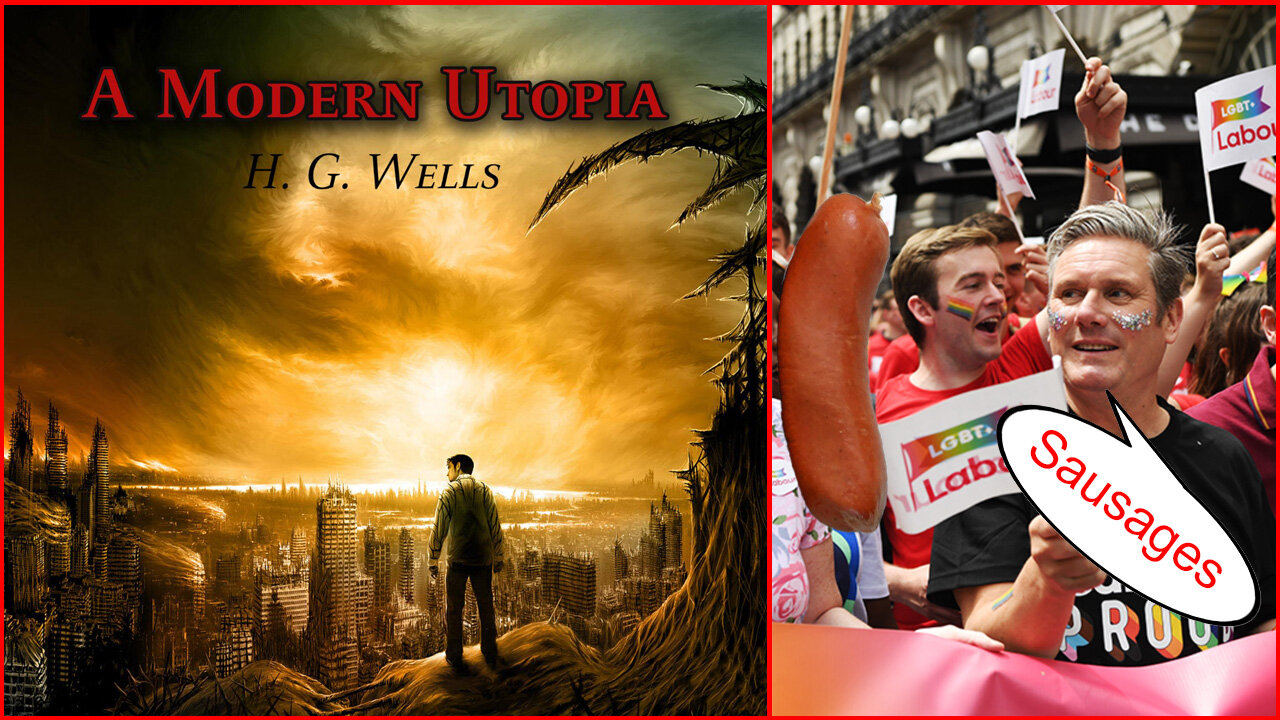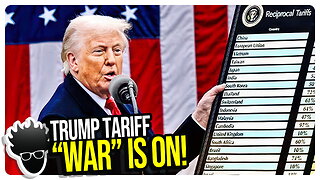Premium Only Content

'A Modern Utopia' (1905) by H G Wells
'A Modern Utopia' is a speculative exploration of an ideal society, presented as a blend of fiction, philosophy, and social critique. The novel follows two characters, "The Narrator" and "The Botanist," as they walk through a parallel Earth governed by a global government known as the World State. This utopian society is designed with Wells’s vision of a progressive, efficient, and humane social order, achieved through rational planning, social welfare, and the abolition of nationalism.
The World State is guided by a class of selfless, highly trained officials called the "Samurai," who uphold the society's values and serve as moral and intellectual leaders. Their role is central to maintaining the Utopia’s values of equality, education, and self-discipline. In this world, property and wealth are distributed fairly, labor is assigned according to ability and interest, and personal freedoms are balanced with social responsibility.
Wells uses the journey through this Utopian Earth to discuss ideas such as population control, gender equality, and the role of science in advancing human happiness. While the novel acknowledges the inherent difficulties and compromises in creating a perfect society, it promotes an optimistic view that human societies can be restructured toward greater justice and efficiency.
Though written as an ideal, A Modern Utopia serves as a commentary on the author's own time, critiquing capitalism, militarism, and the unchecked power of nation-states. Wells imagines a future where technology and governance are used to better humanity, though he leaves open the question of whether such a Utopia could ever truly be realized.
-
 LIVE
LIVE
Kim Iversen
2 hours agoMAHA Doctors Are Being SILENCED! How State Laws Are Bypassing Trump's Health Agenda
18,119 watching -
 2:00:11
2:00:11
Redacted News
2 hours agoMELTDOWN! Trump’s Tariffs causing outrage on both sides, gold surges, markets meltdown | Redacted
55.6K34 -
 1:41:13
1:41:13
vivafrei
5 hours agoTrump Tariff War IS ON! Canada's Political Prisoners Sentenced! Eric Adams Runs as independent?
49.2K15 -
 43:43
43:43
Kimberly Guilfoyle
4 hours agoThe Global Gravy Train is Over, Live with Elizabeth Pipko & Rob Bluey | Ep210
40K17 -
 LIVE
LIVE
Dr Disrespect
6 hours ago🔴LIVE - DR DISRESPECT - WARZONE - OG VERDANSK
3,969 watching -
 LIVE
LIVE
LFA TV
21 hours agoLFA TV - ALL DAY LIVE STREAM 4/3/25
918 watching -
 2:14:02
2:14:02
The Quartering
5 hours agoBlack Youth KILLS White Kid At Track Meet, Stock Market Crash, Fast Food Prices & More
169K66 -
 1:05:34
1:05:34
Russell Brand
6 hours agoMusk Is Out! Are We Rewarding Political Violence Now? – SF560
173K175 -
 LIVE
LIVE
John Crump Live
1 hour agoATF's Political Prisoners!
106 watching -
 LIVE
LIVE
Jamie Kennedy
18 hours agoChrissie Mayr Goes Hard In the Paint | Ep. 200 Hate To Break It To Ya... with Jamie Kennedy
103 watching